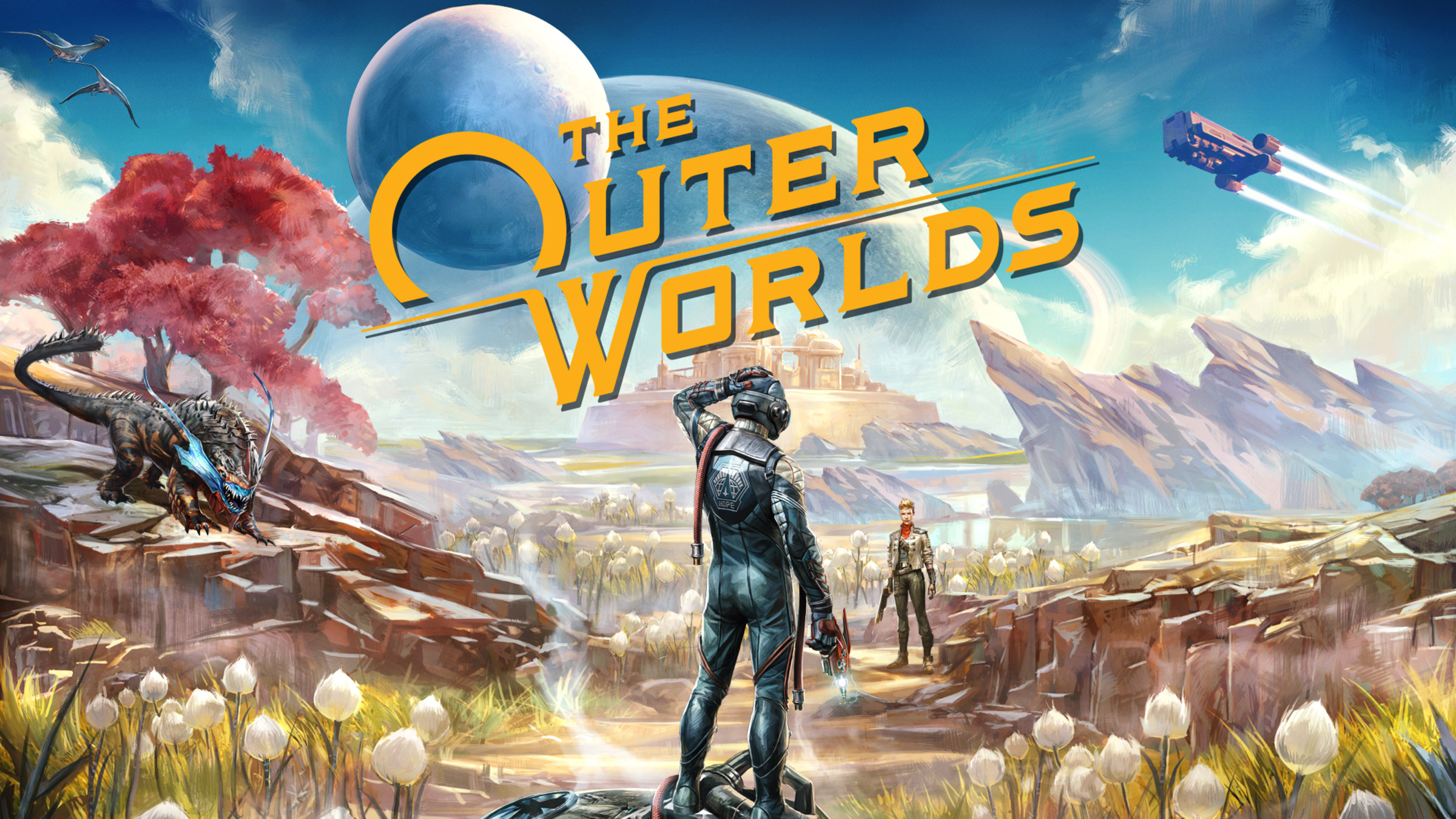The Outer Worlds
Last month, for the holidays, Epic Games released a free game daily for about two weeks, ending with Guardians Of The Galaxy. Among the games released, The Outer Worlds has been a pleasant surprise. Developed by Obsidian Games, The Outer Worlds is a "first-person RPG" similar to Fall Out and The Elder Scrolls. While it could be considered an "FPS," the player has a choice to build whatever character they wish. There are melee and ranged weapons, each split into various classes. Spades, energy swords, baseball bats, and swords are all but several melee weapons that the player will find on their journey. Likewise, rifles, handguns, and heavy guns round out the ranged weapon cast.
The character creation in The Outer Worlds is more based on "min-maxing" than other RPGs I've played. Indicated by the number of triangles next to a stat, being "proficient" in a stat will give a character a perk. For my character, I maxed out Perception, which meant that I dealt bonus damage when I successfully hit an enemy's weak point or a headshot. The second stat I maxed out was the Charm stat. This leads to the second reason why I enjoy open-world RPGs in this style and that is "speech builds." Any game that gives the player an option to "talk their way out of a paper bag" usually leads to some of the most absurd solutions for a problem that would otherwise have ended in bloodshed.
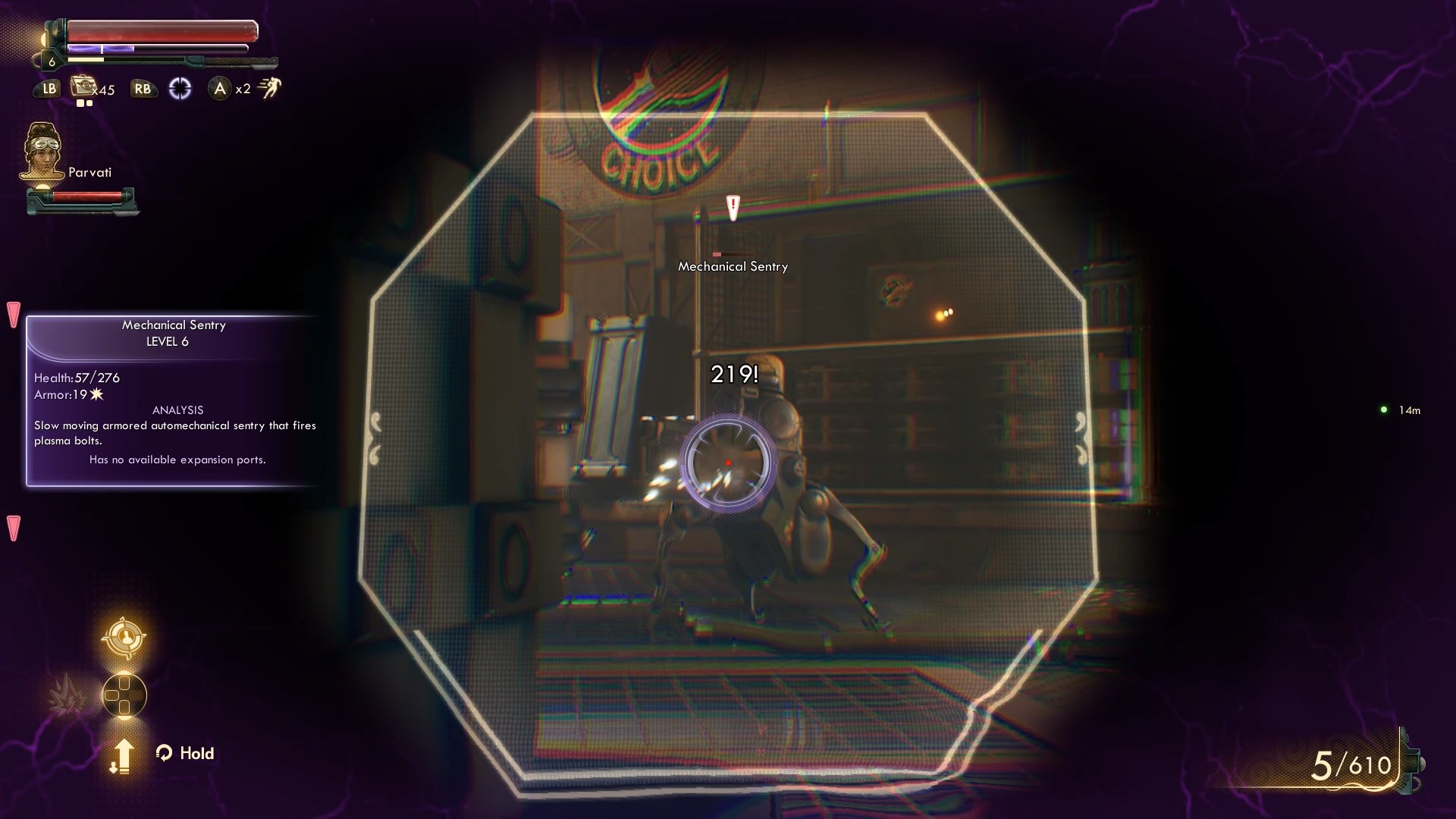
Occasionally, in The Outer Worlds, players can Persuade, Lie, or Intimidate skills to access favorable solutions that benefit the player and their crew. Simple measures like coercing a quest giver to offer a little extra couple of bits as a reward and avoiding combat altogether are a plus. Players earn experience points outside of combat whenever they use a skill and dialog is no different. In the time I've spent playing The Outer Worlds, I earned about the same experience through combats as I did through doing everything else so it was an even balance.
Our journey begins as a resident on the Hope, a giant space colony in which many like yourself are in stasis. Fortunately, a mad scientist frees the player from cryosleep and tasks them with saving the other colonies from the influence of mega-corporations. Essentially, the plot involves trying to topple a corrupt government, capitalism, or both! The intended plan was to meet with a contact, but unfortunately, our mad scientist friend miscalculates our escape pod landing, killing our smuggler.
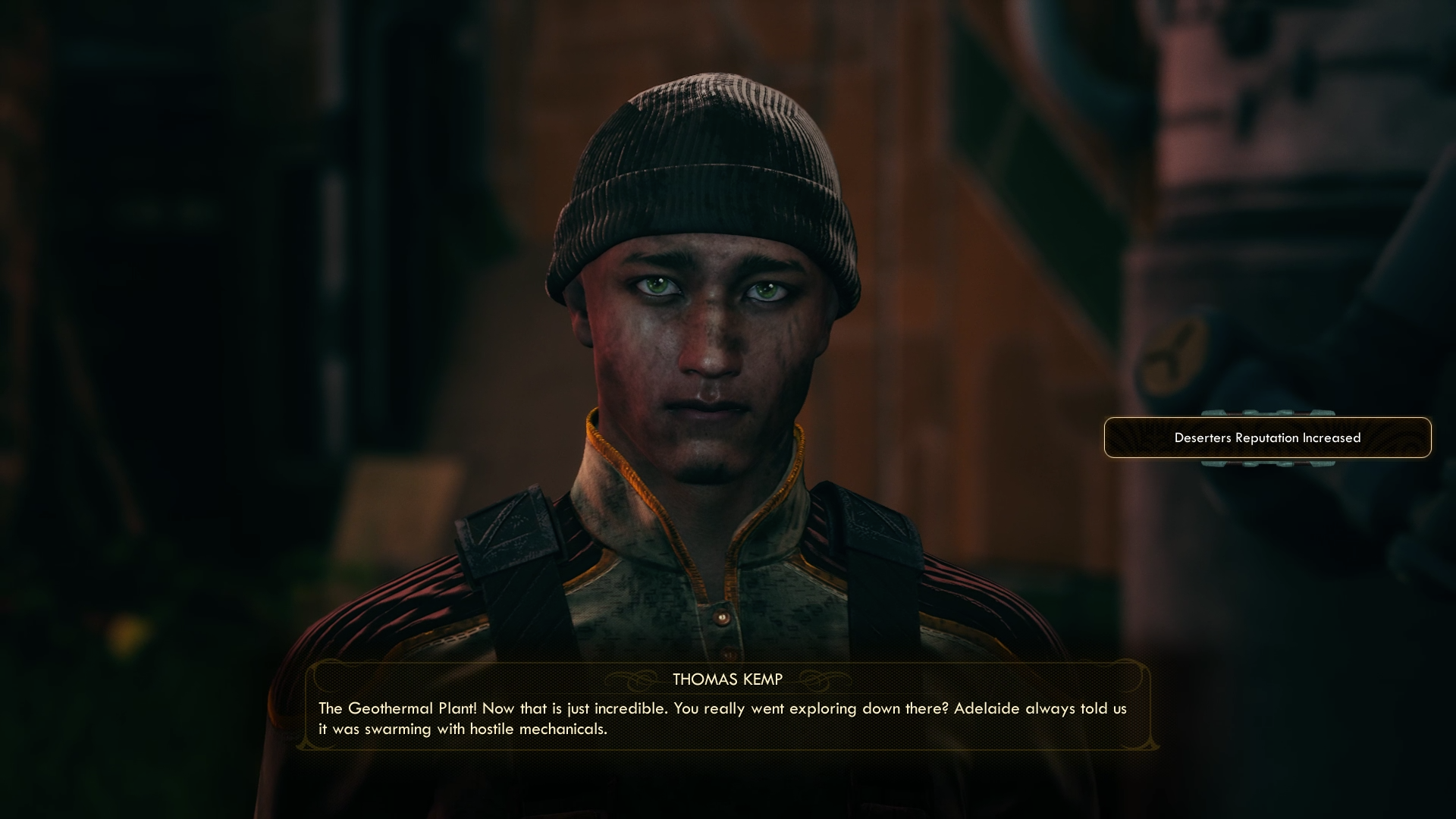
It is here that the game's world begins to come into its own. You're a stranger in a strange land with nothing to your name but the clothes you left when you were in a deep sleep for "X" number of years. Suddenly, larger-than-life colorful canines approach and the game tells you to hide in tall grass. The feeling of being prey only lasts temporarily as you'll soon get a pistol after, but in that moment you feel as if this beautiful world can take you in at any time. There's a gentleman inside who will give you a pistol to defend yourself and if you also had dialog skills unlocked, you could convince him to give you his melee weapon as a bit of extra on the side.
One of the major combat mechanics is time dilation and this helps with players who suck at aiming in first-person shooters much like myself. Like Max Payne's Bullet Time mechanic, time slows to a crawl, and aiming gets easier. Attacking enemies in certain locations will cause certain debuffs to trigger, yet the objective is to aim for the enemy's weak spot. Since I'm not built for combat, I'd rather avoid combat altogether. It's a coincidence that my high perception gives me a bonus in critical damage.
Eventually, I'd stumble into Edgewater, a broken city that is being held together by a shoestring. There's a plague that is affecting the townsfolk, the working conditions are horrible, and the living conditions are worse. To leave the planet, you need a power generator for an abandoned ship. The mayor is willing to give you the power generator in exchange for settling a power struggle with some deserters. Seeing how unjust the living conditions are in Edgewater, the deserters have been using the power from the grid to create life for themselves.
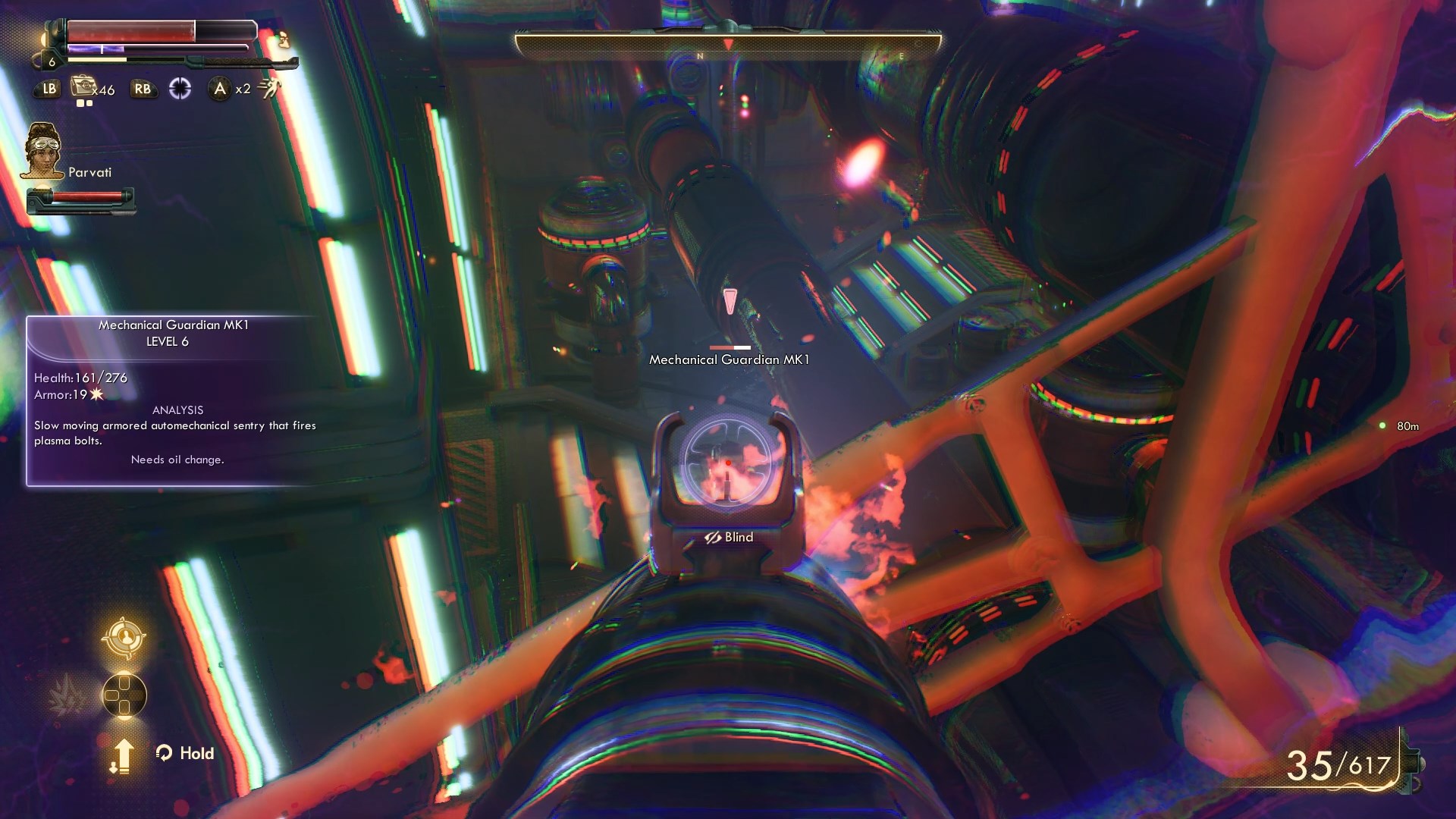
The original goal is to convince the deserters to return to Edgewater so that all the power can go to the city without any stragglers left at risk. Eventually, the player will reach the settlement where the leader will propose a different option. She wants all the power to herself so that her settlement can continue to thrive. The obvious issue with this is that there would be no power to an entire city. Accompanying the player is a perky engineer, Parvati, who is the player's better conscience. I'm playing my character as if she was a wise-cracking silver-tongued talker, so someone has to be the better conscience on my shoulder.
She proposes that it's best to divert the power to Edgewater and convince the leader of the settlement to return as well. Many innocents in one city will suffer because of a personal vendetta between two community leaders who are not putting their communities above their own needs. Some people left the city who had never gotten sick, people with problems that need solving and are otherwise trying to make ends meet. A young teenage rebel leaves home and the guard asks the protagonist to bring her back. Someone else wants to be an engineer but needs a bit of encouragement. The settlement is not enough to hold everyone much less keep enemies at bay.
I did the most logical thing I felt I could do in this scenario. Divert power back to Edgewater. After all, the townsfolk need it the most. I could always encourage the settlement leader to return. Eventually, I was able to find a diplomatic solution and the town reached a favorable solution. None of this would have been possible if it wasn't for my talking skills, but there were other alternate options I could have chosen if talking didn't work. Combat is always a valid option. It was something that one of the characters said to me that made me think The Other Worlds is neither "black nor white" as I expected.
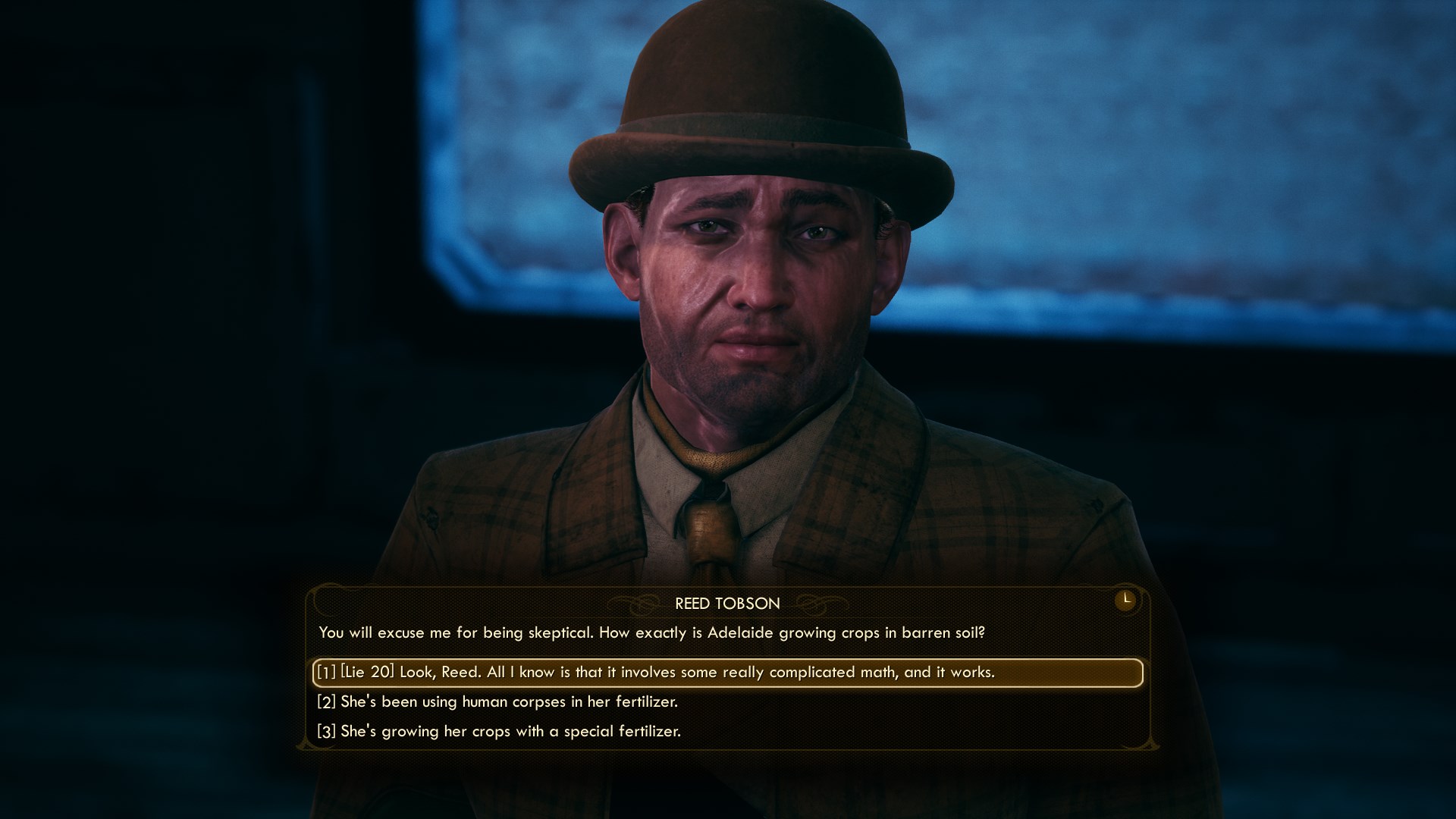
"One hand hurts while the other hand helps" is such a killer line that will become a recurring theme in The Outer Worlds. To do the right thing, sometimes the player will have to take away from others. So far it was as simple as deciding who gets to keep power. In the future who knows? I may need to prevent a global uprising.
The Outer Worlds handles humor in a straightforward yet satirical manner. The kind of humor that Fall Out believes it can become yet the dialogue doesn't feel as forced. So far, the gameplay, the graphics, and the overall story have been a huge surprise. The Outer Worlds will be a title I return to as I finish with a final review. If you managed to pick this one up during Epic Game Store's giveaway, you have an underrated gem on your hands.
The Outer Worlds is available on PC, PlayStation 4, PlayStation 5, Xbox One, Xbox Series X/S, and Nintendo Switch.

